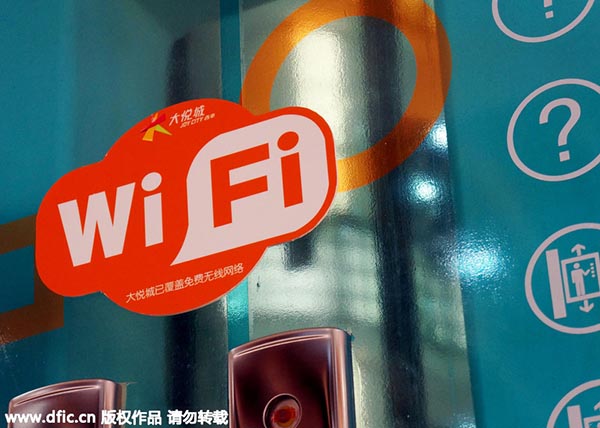 |
|
A free wifi sign is seen at Xidan Joy City, a shopping mall in downtown Beijing in this Nov 3, 2011 file photo. A study by Qihoo 360 says China's public Wifi currently reaches 6.5 million people but more than 80 percent can be easily attacked. [Photo/IC] |
As much as Wifi offers the convenience of surfing in cyberspace, it has serious security loopholes, according to a report by China's largest security software company.
The study, by Qihoo 360, says China's public Wifi currently reaches 6.5 million people but more than 80 percent can be easily attacked.
Most use simple passwords that hackers can break within 15 minutes. People use Wifi when they visit a café or other public places, including schools, office buildings and government departments, but most do not know or even care that their information may be vulnerable to security risks, the report said.
For example, a resident surnamed Zhou from Yangzhou, Jiangsu province claimed a 60,000-yuan ($9,581) bank balance dropped to 500 yuan without him withdrawing any money.
Local police said Zhou's loss related to information stolen when he used free Wifi in a public place.
In another case, a woman surnamed Li from Hubei province discovered 10,000 yuan missing when she used her credit card for shopping. Investigations found Li's loss was caused because she had used free public Wifi to pay 200 yuan for her mobile phone, said the report.
With the rapid development of the Internet, many activities have gone online, such as shopping, making bank deposits and ticket purchases. All activities need the customer to type in personal information, including names, bank accounts and identity card numbers.
Although free Wifi is convenient, its security environment is extremely weak, there is no protection as users surf the Internet, the report said.
Some hackers make use of fake websites to replace real ones, stealing users' information and then defrauding them.
Engineers at the security company advise not using public Wifi for purchases and scanning websites when opening security software or mobile phone applications.
